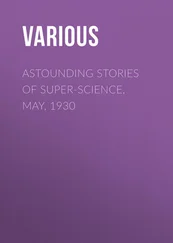“Makin spared me that responsibility. ‘Mikhail Pavlovich, please, don’t worry about me. This time, I’ll look out for myself,’ he said with his gypsy smile. It was pride and shame speaking. Gypsies are a proud people. There was nothing more I could do. We soon acquired new upstairs neighbors—”
“Wait. Do you think he knew that it was you who sent Galochka away?”
Deda Misha looked surprised. “I don’t know, I didn’t tell him. It was beside the point. Makin hadn’t changed at all, Galochka or no Galochka.
“I remember our new upstairs neighbors well because your father became best friends with the son, also named Tolya. That Tolya’s father was a police detective and his mother taught phys-culture at Baba Mila’s school. Details, details. I’m glad to have such a greedy memory, to remember every day with my family and Baba Mila.
“Baba Mila and I moved back to Ukraine in the midseventies, after your father graduated from college. Just before leaving, I saw Makin on our local TV. It was the studio where they filmed all the concerts in Magadan, the one with the black-and-white four-leaf clover floor. ‘ All’s ever, the same old guitar, ’ he sang with his usual earnestness and accompanied himself on the piano. His perennial rubber cat perched on top of the piano. He was in that same familiar pose, turned toward the audience, emphasizing the words with his torso and hands. That same unmistakable timbre, though his voice was weaker now. Vocal cords are just muscles, and they get old whether you are a star or not a star. He seemed to be really enjoying himself. He sang the songs he’d written about Magadan: ‘Snow Waltz’ something, ‘The Streets of Magadan.’ I didn’t like them as much as his old classic songs.
“Then, one of the listeners asked him about his early years as a singer, when he was worshipped by the whole USSR. Makin must’ve been almost seventy then, bald and chubby but still sprightly. He was finally free to leave Magadan. I don’t remember much of the interview except that he said — in a friendly tone and smiling, that I remember — that he didn’t regret anything. Vot tak … The end.”
“The end? But what happened to Galochka?”
“Galochka? She returned to Magadan a few months after Makin’s arrest and continued to work in our accounting department. Then she resigned and left for the continent. Some said she’d had a mental breakdown and went to a sanatorium on the Black Sea. I don’t know for sure. I’ve never liked to get involved with the gossip. So you stayed till the end of the concert, eh?”
Sonya nodded. She was reeling from the story.
“Did they announce that he would finally receive the title of People’s Artist of Russia?”
“I don’t think so.” She combed her mind. Could she have slept through it? The concert seemed like it had happened a century ago.
“I don’t think Makin was ever officially rehabilitated. A pity, a pity, but what can you do.”
“You don’t have any connections anymore, to help him?”
He smiled. “No, Sonechka.”
They sat in silence. Deda Misha stared into the empty teacup as if divining the tea leaves. Sonya rose and picked up the empty bowl and her cup.
“Leave it, Sonechka. I’ll clean up,” he said. “Go to bed.”
She stood in front of the frosted window. “Deda,” she whispered.
He grunted tiredly.
“Is it sometimes better to keep the animal locked up?”
“ Kak ? What animal?”
“The wild animal. Like with you, when you told Galochka about Makin. Sometimes, maybe it’s better to keep it in the cage?”
“What are you talking about? The wild animal was just me saying … it’s just a metaphor.”
“I know it’s a metaphor!” Sonya cried out. “I’m not totally dumb. I know it’s a metaphor. I didn’t open the stupid cage.”
“Shhh!”
A hot wave of shame rose up through her chest and pushed on the top of her throat. “I didn’t tell Papa about Oleg, not even when he moved in with us and ate the food Papa sent. I didn’t want Papa to come back from America. I didn’t stop them.”
Deda Misha was silent for a long time. “Don’t worry too much about that, Sonya. Your father knew. Magadan is a small town. He allowed it.” His glance had a harsh, unfamiliar edge.
She grieved for her mother and her father — and for Makin.
“We didn’t think that in the end she would be stupid enough to leave. Our side of the family doesn’t give up easily, though.”
She was suddenly disgusted with Deda Misha. For the last two years her mother had been both happier and more miserable. But what was she like before she met Oleg? Sonya could hardly remember.
“Too bad you’re leaving tomorrow, Deda. We could’ve visited Makin,” she said. He started at the mention of Makin. “I want to see that famous rubber cat. Maybe I’ll go to his museum with Mama later, then stop by his apartment and ask him if he remembers you.”
“The true tragedy is to have lived without a woman’s love, Sonya, to not be able to love a woman. I don’t regret sending Galochka away. Measure seven times, cut once, as they say.” Deda Misha stared at a space in front of him. “And he even denied it to the journalists, in the nineties. One of my old Magadan acquaintances had read in the newspaper and called me. I was shocked.”
“Denied what?”
“He said he was only interested in those circles for the sake of art … he wanted to know how they lived, how everyone lives, to write better songs. And the incident in Sverdlovsk was pure provocation. Again.”
“But if he wasn’t, how…”
“A setup, he claimed. Because people were jealous of him, and certain people wanted revenge, but he didn’t say who or for what. He had never been married but he had had an infant daughter, he said, and she died with her mother during the Leningrad blockade. For all the years I’d known him, he’d never mentioned any daughter. I don’t believe that he was honest in the interviews. Or maybe he finally changed.”
“Good night.” Sonya walked out into the living room without kissing him. She had an unpleasant feeling in her stomach, like she’d eaten spoiled food.
She got to her room and realized that she’d forgotten all about Max. She switched off the lights and looked out: even through the curtain of snow she could see that his windows were still black. It was almost one in the morning. Everything would be better as soon as Max’s windows lit up.
The old hysterical woman who had burst into Makin’s museum opening, was that Galochka? Her fate was painful to imagine. She could have married, had children, and even grandchildren by now. Or she could have died years ago. Of a broken heart.
Sonya had to know now whether she loved Max or not. The ultimate test of true love was to give your life for your beloved. She thought of her homeroom at the English Lyceum, her favorite teacher, Lyudmila Abramovna, the scratched blackboard, the ficus plant on the windowsill, the portraits of the great Russian writers looking down sternly at the three rows of desks with chewed gum stuck to their undersides. Except Pushkin. He looked inspired and a little sad. Maybe because he had foreseen that he would die for love.
It was absurd to imagine yourself dying in such ordinary circumstances, in your familiar-familiar hometown, yet it shouldn’t have to matter. Love was love. She imagined herself with a gunshot wound in her chest, bleeding into the sheets. She willed Max’s windows to light up.
apparatchikA functionary in a politico-bureaucratic organization; from the Russian word apparat, meaning a collective of people working in this type of organization.
Читать дальше
Конец ознакомительного отрывка
Купить книгу












